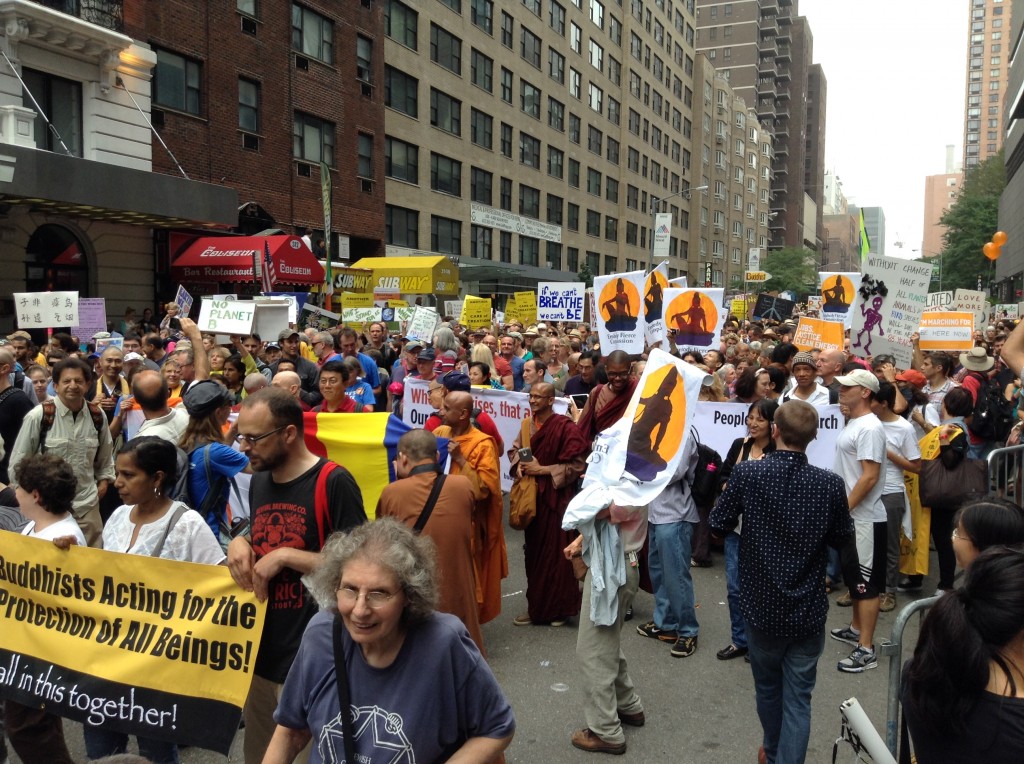A video appeared online last Wednesday that shows four U.S. Marines urinating on three corpses in Afghanistan. At least two of the Marines have been identified, according to a BBC report; Reuters was the news organization able to identify their battallion through an anonymous tip.
Responses were appropriately swift. Among them, U.S. Secretary of State Hillary Clinton said:
[What this video shows] is absolutely inconsistent with American values, with the standards of behavior that we expect from our military personnel, and that, you know, the vast, vast majority of our military personnel, particularly our marines, hold themselves to. So, I know [U.S. Defense Secretary Leon Panetta] has ordered a complete investigation of this incident. Anyone, anyone found to have participated or known about it, having engaged in such conduct, must be held fully accountable.
As Secretary Clinton suggests with her remarks, finding the appropriate measure of accountability in this situation is especially important. Indeed, as The Guardian noted in a recent report:
Despoiling of the dead is illegal under the Geneva conventions as well as under US military law.
I don’t really want to speculate or opine about appropriate censure in this situation, though. In fact, I’d like to talk about another aspect of this whole issue that came up for me in Rep. Allen West (R-FL)’s public response to the video.
Rep. West, a veteran of the U.S. Army, sent an email to The Weekly Standard shortly after news of the video broke. In this email, he writes:
I have sat back and assessed the incident with the video of our Marines urinating on Taliban corpses. I do not recall any self-righteous indignation when our Delta snipers Shugart [sic] and Gordon had their bodies dragged through Mogadishu. Neither do I recall media outrage and condemnation of our Blackwater security contractors being killed, their bodies burned, and hung from a bridge in Fallujah.
All these over-emotional pundits and armchair quarterbacks need to chill. Does anyone remember the two Soldiers from the 101st Airborne Division who were beheaded and gutted in Iraq?
The Marines were wrong. Give them a maximum punishment under field grade level Article 15 (non-judicial punishment), place a General Officer level letter of reprimand in their personnel file, and have them in full dress uniform stand before their Battalion, each personally apologize to God, Country, and Corps videotaped and conclude by singing the full US Marine Corps Hymn without a teleprompter.
As for everyone else, unless you have been shot at by the Taliban, shut your mouth, war is hell.
It’s quite right, I think, to point out that it is very difficult for those of us who have not served in the military to truly understand the unique pressures of being a soldier, and the exact ways war changes a person. We all do well to have some perspective in this regard. (Though, to be fair, the military itself understands these pressures and changes and still expects that those within its culture will not commit acts like those captured in the video.)
That said, I do have problems with Rep. West’s response — specifically, the “shut up” part.
The first paragraph would seem to insinuate that public response to incidents in which American soldiers are on the receiving end of unlawful conduct in war is somewhat muted. This seems to me (1) unfair, (2) misleading, and (3) not on point. It strikes me as unfair in that it seems to question the sympathies of anyone critical of this situation; misleading in its claim that there was no similar moral outrage to incidents in Somalia and Iraq (really? Among other things, SGT2 Randy Shughart and MSG Gary Gordon received posthumous Medals of Honor, the larger story of which they were a part inspired the bestselling book and the hit film Black Hawk Dawn, and a U.S. Navy battleship was named for Shughart. In addition, the deaths of the four Blackwater contractors in Fallujah, and subsequent release of photos and video of their bodies, in the words of even Wikipedia, “[caused] outrage in the United States,” which was certainly apparent at the time in news coverage and opinion-editorials. And, of course, the deaths of those contractors was still in the news as recently as the beginning of this month, when their families, after seven years, finally reached a confidential settlement in the wrongful death suit they filed against Blackwater’s corporate successor); and not on point in that what’s at issue here is that the U.S. military has always aspired to a very high standard of conduct — higher than those we would call enemies. I don’t know that I personally believe war can ever be that civilized, but we have established rules of war that were broken here. This is about expecting better from ourselves and living up to our values, irregardless of the actions of soldiers elsewhere in the world. We love to say that as Americans we do things better, and we haven’t here. We need to talk about that.
I interpret Rep. West’s second paragraph to be suggesting that this incident with the Marines urinating on Afghan corpses is less deserving of attention and criticism than comparatively more horrific acts of violence perpetrated upon Americans by others, such as the murder and mutilation of PFC Thomas L. Tucker and PV2 Kristian Menchaca in Yusufiyah in 2006. Absolutely none of the opinions I have read or heard by those critical of the Marines in the video are saying that this incident is more important than the incidents against American soldiers that Rep. West invokes. Again, I think these are distinct, separate issues: responding when others violate international and military law, and responding when we ourselves violate international and military law. Both are deserving of our attention. We can do more than one thing at once, so why “shut up” about this issue altogether?
The last two paragraphs seem to suggest that, in terms of punishment, this should be handled “in-house,” under military jurisdiction, without feedback from those who have not served. This is, of course, hugely problematic, especially considering the implications here in terms of international law and international relations (Afghanistan’s president, Hamid Karzai, has condemned the actions of the marines in no uncertain terms). Realistically, this is something much, much more than simply a military conduct issue.
Lastly, it’s important to say that people should not “shut up” about this, and we need as many informed perspectives as possible. If we are going to curb and completely stop incidents like this, among our own soldiers and globally, we have to be able to talk about it.
It’s very convenient in these situations for people to say things like “let us handle our own on our own” or “these are just a few bad apples.” It’s convenient because it keeps us from looking at the systemic problems that might contribute to the horrors of war. On the one hand, Secretary Clinton is very right to point out that the vast majority of military personnel hold themselves to a higher standard than we see in the video. On the other hand, considering the ways we prepare soldiers for war, talk about war in public statements, report on it, and often just think about it, is it really any surprise that we must confront situations like this from time to time?
I’m reminded of the great David Loy‘s teaching on “The Nonduality of Good and Evil” for the Spring 2002 issue of Tricycle: The Buddhist Review:
We all love the struggle between good (us) and evil (them). It is, in its own way, deeply satisfying. Think of the plots of the James Bond films, the Star Wars films, the Indiana Jones films. In such movies, it’s quite obvious who the bad guys are. Caricatures of evil, they are ruthless, maniacal, without remorse, and so they must be stopped by any means necessary. We are meant to feel that it is okay—even, to tell the truth, pleasurable—to see violence inflicted upon them. Because the villains like to hurt people, it’s okay to hurt them. Because they like to kill people, it’s okay to kill them. After all, they are evil, and evil must be destroyed.
What is this kind of story teaching us? That if you really want to hurt someone, it is important to demonize them first—in other words, fit them into your good-versus-evil story. That is why truth is the first casualty of all wars.
Everyone is responsible for their own actions, but we need to ask questions and talk about the ways in which we frame ourselves and others, and how those frameworks contribute to cultures of violence and war.
The sky won’t fall if we talk more about war and how horrible all of its various aspects are. Don’t listen to those who tell you to “shut up” about it. Start talking more about it more, in fact. We have to find our way back to the truth. From there, real, lasting peace might just be possible.












